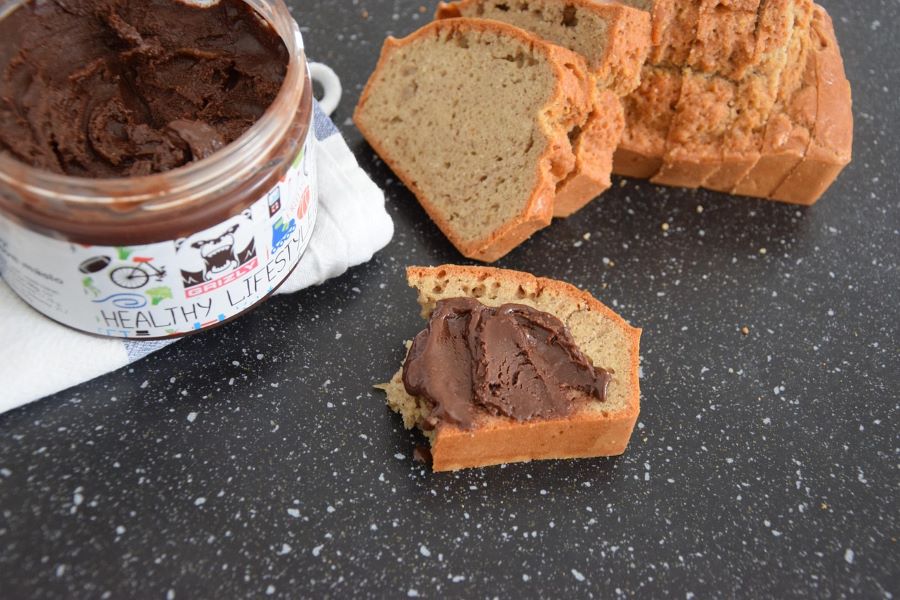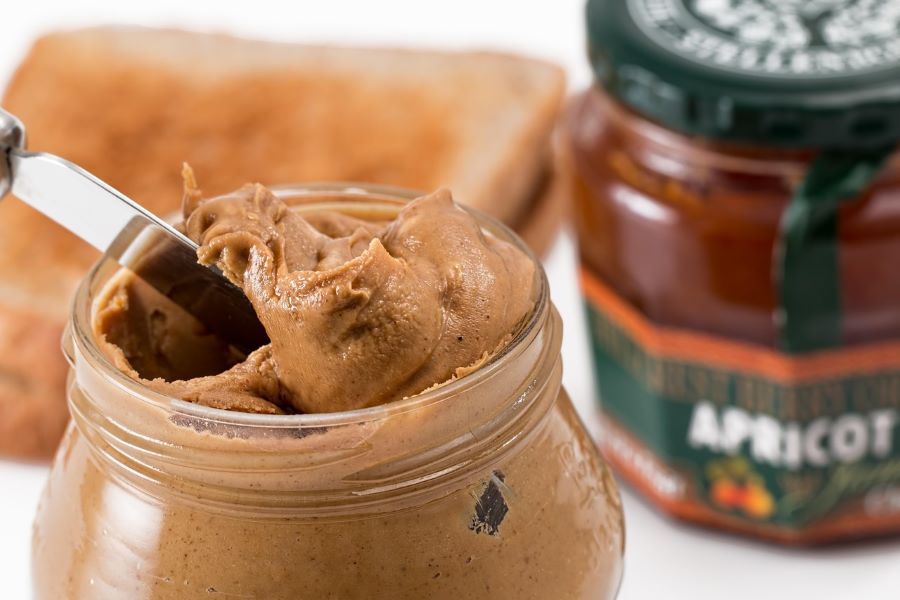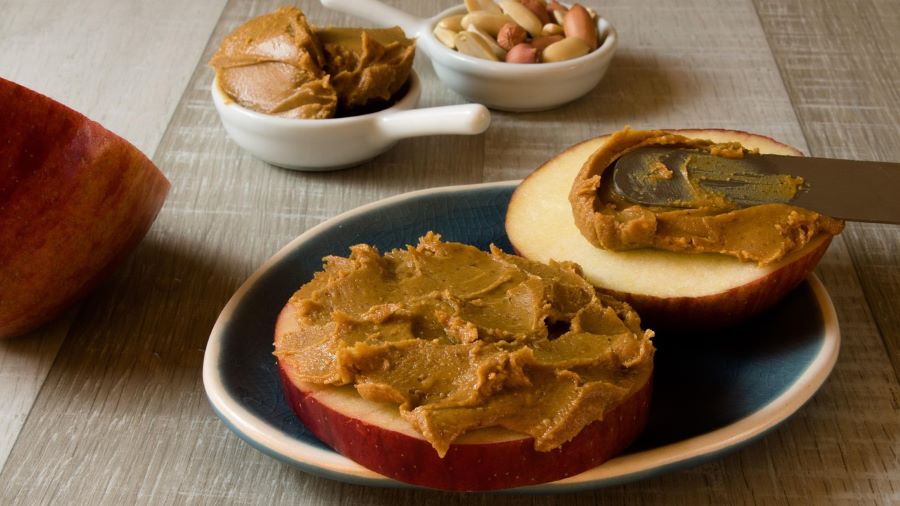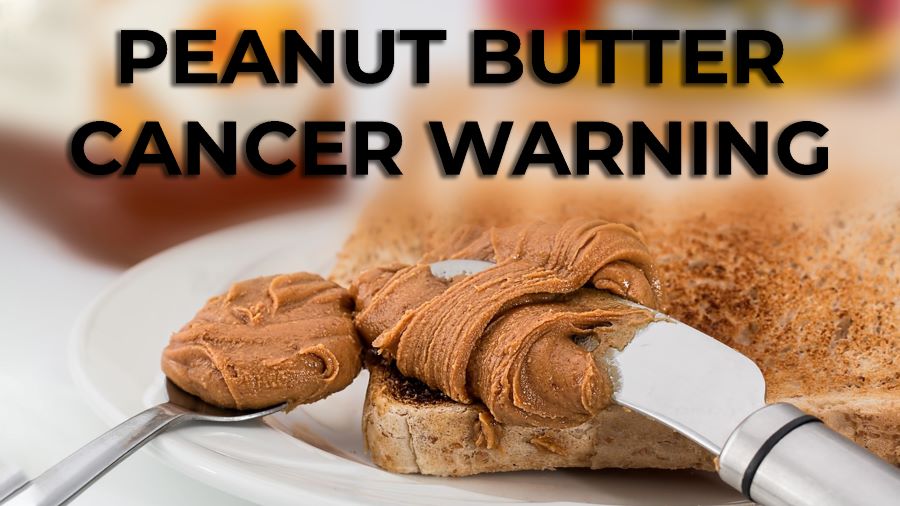Let’s be honest—most of us grew up loving peanut butter. Whether it was slathered on toast, swirled into oatmeal, or used to glue together those classic PB&J sandwiches, it’s been a pantry staple for years. But recently, more people have started asking questions like, “Can peanut butter cause cancer?” or “Is peanut butter bad for cancer patients?” These questions are not just whispers online—they’re valid concerns that deserve real answers, especially with so many conflicting claims floating around.
So, let’s break it down together in simple words, just like talking to a friend over coffee. This article unpacks the peanut butter cancer warning in a clear, honest way. No complicated jargon. Just facts, insights, and a bit of heart.
What’s Behind The Peanut Butter Cancer Warning?
You might’ve seen a warning on a peanut butter jar or maybe read a blog post with a scary headline. What’s that all about? It mostly comes down to one word: aflatoxins.

Aflatoxins are toxic substances made by mold that can grow on peanuts if they’re not stored properly. According to Wikipedia, aflatoxins are known to increase the risk of liver cancer. Now, that doesn’t mean eating a spoonful of peanut butter will give someone cancer. The U.S. FDA has strict limits on aflatoxin levels in foods, including peanut butter.
That said, cheaper brands or imports from countries with weaker regulations might pose more risk. If you’re buying peanut butter from your local supermarket in the U.S., Canada, or most of Europe, the chances of harmful aflatoxin exposure are pretty low.
So, the warning exists out of caution, not panic. But it’s still good to stay informed.
Can Peanut Butter Cause Cancer?
It’s a question that keeps popping up: “Does peanut butter cause cancer?” Short answer? Not directly. Long answer? It’s complicated.
Peanut butter itself isn’t a carcinogen. It doesn’t contain cancer-causing ingredients. But remember those aflatoxins we just talked about? That’s where the concern lies. According to studies by the World Health Organization and the CDC, long-term exposure to high levels of aflatoxins can harm the liver and raise cancer risk.
But let’s put this in perspective. You’d need to eat massive amounts of highly contaminated peanuts over many years for it to become a serious threat. In countries with strong food safety laws, this is unlikely.
Also, most commercial peanut butters are tested and processed to remove harmful molds. Buying from reliable brands and storing it in a cool, dry place helps lower any possible risk even more.
Is Peanut Butter Bad for Cancer Patients?
When someone hears a peanut butter cancer warning, one of the first questions that comes up is, “Is peanut butter bad for cancer patients?” It’s a fair question—especially when every bite counts during treatment.
Here’s the simple truth: for most people going through cancer, peanut butter can actually be helpful. It’s full of protein, healthy fats, and energy-rich calories. These are all important when appetite drops or when keeping weight on becomes a challenge. For many patients, a spoonful of peanut butter is an easy way to fuel the body without having to eat a full meal.
That said, the peanut butter cancer warning does bring up one concern—aflatoxins, the mold toxins that can be present in poorly stored peanuts. People with weakened immune systems, especially during chemotherapy, may need to be more cautious. Some doctors suggest avoiding unprocessed or preservative-free peanut butter that could carry higher risks.
When it comes to peanut butter and breast cancer or peanut butter and prostate cancer, research has gone back and forth. Older studies raised questions about hormones and fat content, but more recent findings show that moderate peanut butter intake isn’t harmful—and may even offer some benefits due to its nutritional content.
As always, balance is key. Cancer patients should check with their healthcare team before adding it to their daily meals. But for many, peanut butter remains a comforting, safe, and nourishing choice when chosen wisely.
Peanut Butter And Cancer Risk: A Closer Look At The Data
It’s easy to worry when you see a peanut butter cancer warning, but instead of guessing, let’s look at what the science actually says.

Multiple long-term studies—from places like Harvard University and the American Cancer Society—have looked closely at peanut butter and cancer risk. So far, there’s no strong proof that eating peanut butter increases the risk of developing cancer. In fact, some studies even suggest that eating peanuts and peanut butter regularly might help lower the risk of certain cancers, particularly in women.
That said, peanut butter isn’t some magical superfood. It’s not going to cure anything, and it’s not completely risk-free. The main concern that still sticks around is aflatoxins, which are mold toxins that can grow on peanuts. This is what’s behind the peanut butter cancer warning in many cases. The good news? In countries with strong food safety laws, these toxins are strictly tested and kept at very low levels in commercial peanut butter.
Is Peanut Butter Bad For Prostate Cancer?
This one gets asked a lot, especially by men trying to clean up their diets.
Some early reports worried that peanut butter might contain saturated fats or estrogen-like compounds, which could affect hormone-sensitive cancers like prostate cancer. But newer studies show these fears are overblown.
In fact, many doctors now say that natural peanut butter in moderation is fine, even for prostate cancer patients. Just avoid those extra sugary versions or brands with hydrogenated oils.
The key is to read labels. Look for peanut butters that contain just one or two ingredients—peanuts and maybe salt. Avoid anything with palm oil, sugar, or weird preservatives.
Is Peanut Butter Good For Cancer Patients?
Now we flip the question—can peanut butter actually help?
For some cancer patients, the answer is yes. It’s calorie-dense, easy to eat, and full of energy. During chemo or radiation, many people feel tired, nauseous, or just not hungry. A spoonful of peanut butter can help keep strength up without needing a full meal.
It’s also gentle on the stomach for most folks. Peanut butter can be added to smoothies, crackers, or even stirred into warm cereal.
Still, every patient is different. Someone with nut allergies or stomach sensitivity might need to avoid it. But for many others, it’s a helpful comfort food during a tough time.
Peanut Butter Cancer Warning: How It Relates to Liver Cancer
Let’s talk about one of the biggest concerns tied to the peanut butter cancer warning—its possible connection to liver cancer.
The main issue here is something called aflatoxins. These are toxic substances made by mold that can grow on peanuts, especially when they’re stored in hot, humid conditions without proper care. In some parts of the world, where food safety rules aren’t strict, people may eat peanuts or peanut butter with higher levels of aflatoxins. Over time, this kind of exposure has been linked to a higher risk of liver cancer.
That’s the heart of the peanut butter cancer warning. It’s not that peanut butter itself is harmful. The warning exists because of the potential for aflatoxin contamination in poorly processed or stored peanuts.
In countries like the U.S., Canada, and much of Europe, food safety systems are strong. Peanuts and peanut butter are regularly tested to keep aflatoxin levels low. So for most people, the risk is very small.
Still, if someone already has liver concerns—like hepatitis, cirrhosis, or a family history of liver cancer—it makes sense to be extra cautious. Choosing brands that test for aflatoxins or going for organic options might offer extra peace of mind. And if there’s any doubt, it’s always smart to talk to a healthcare provider.

Peanut Butter Health Risks To Keep In Mind
Peanut butter is a beloved food, but it’s not perfect. Let’s break down the risks:
-
Allergies: This is a serious one. Peanut allergies can be life-threatening. Always be cautious with kids or guests if you’re not sure about their tolerance.
-
Added Sugar & Salt: Many commercial peanut butters have way too much sugar or sodium, which can affect heart health.
-
Overeating: It’s easy to eat too much. Peanut butter is high in calories, so portion control matters.
And yes, there’s that aflatoxin worry again. Choose brands that test for safety. You can also store your peanut butter in a cool, dry place and eat it before the expiration date.
FAQs
Can peanut butter cause cancer?
Not directly. But if it contains high levels of aflatoxins due to poor storage or manufacturing, it may raise the risk, especially of liver cancer.
Is peanut butter bad for cancer patients?
Usually, no. It’s actually a good source of calories and protein for many patients. Still, those with weak immune systems should consult a doctor first.
Is peanut butter a carcinogen?
No, peanut butter itself isn’t a carcinogen. The concern is with aflatoxins, which are toxic mold byproducts sometimes found in peanuts.
Is peanut butter bad for prostate cancer?
Not in moderation. Most research says natural peanut butter is okay for men with prostate concerns. Just avoid processed versions.
Does peanut butter increase cancer risk overall?
Current research doesn’t show a strong link. When eaten in moderation from a safe source, peanut butter is not considered a major cancer risk.
Final Thoughts
The peanut butter cancer warning can sound scary, but once you look at the facts, it’s less alarming. Yes, aflatoxins are real and dangerous in high amounts. But in places with proper food safety laws, they’re kept at very low levels.
As with most things, moderation and smart choices are key. Choose reputable brands, check the ingredients, and store your peanut butter properly. For most people—even those facing cancer—peanut butter can still be part of a safe, comforting, and nutritious diet.
And let’s be real—it’s hard to beat the joy of peanut butter toast on a quiet morning.

